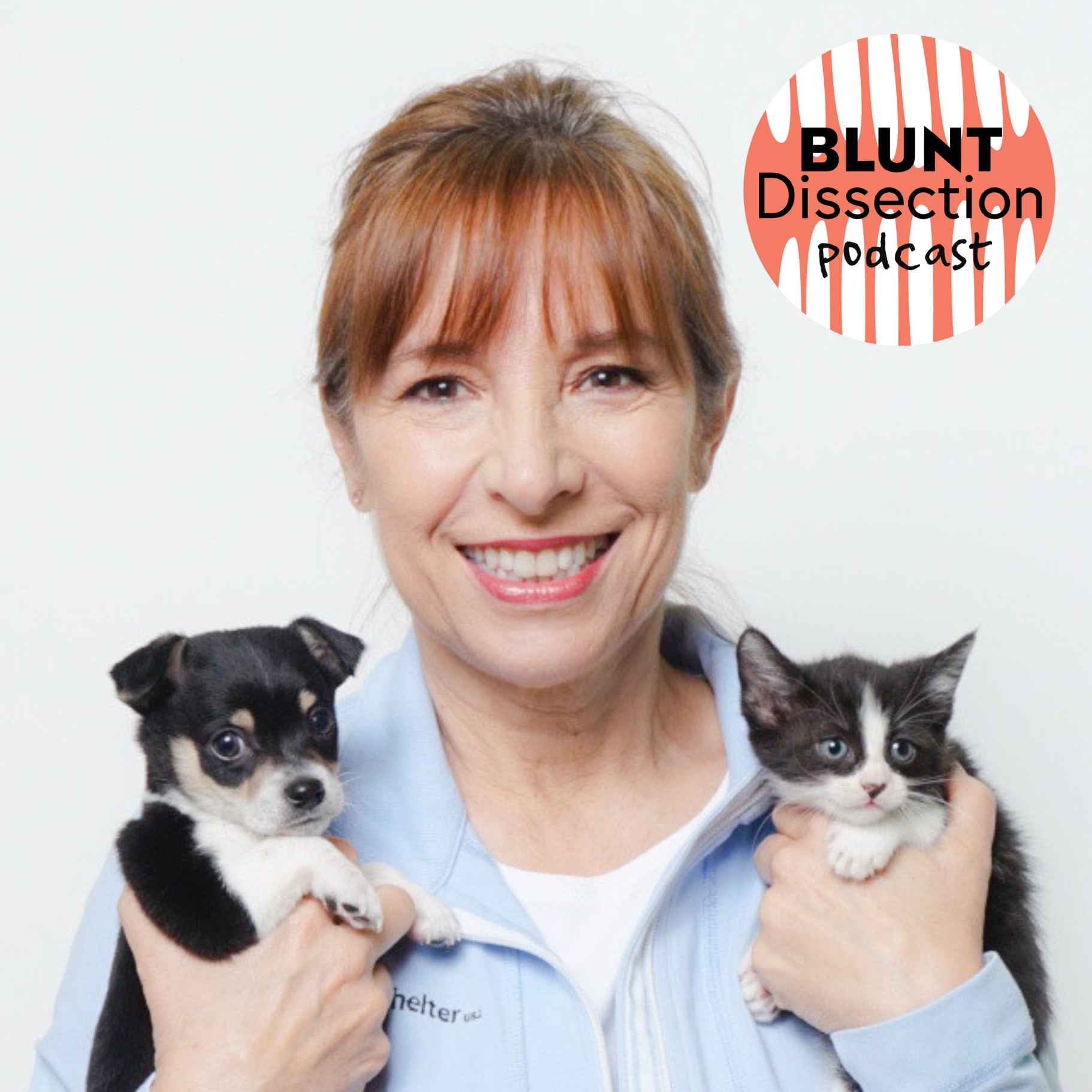Jan 05 2023 75 mins 10
On today's episode of Blunt Dissection, we are doing something a little bit different. For the last six years, I have been interviewing people who are doing remarkable things in veterinary medicine. But this year I feel like getting curious about what different models and thinking is out there.
Why? - The reason is pretty simple. We are in what seems like an unsustainable moment where we are haemorrhaging talent of all kinds out of the veterinary profession. This comes at a time when there is increased demand in terms of quantity and availability of service but also in terms of quality of service.
We are haemorrhaging talent in the face of increased stress, which starts at university, driven by the soaring costs of education. A stress that previous generations did not have.
And yet acting as a counter-balance we see huge improvements to the quality of life. Working hours per week have never been lower. And we now speak openly, freely and widely about the mental health issues that have confronted this profession for generations.
This of course is all playing as we observe the sweeping changes to the ownership structure of veterinary practices. Gone, it seems, are the days of independent practice as we move into the days of market consolidation and multinational corporate medicine.
The chief decision makers are now shareholders or financiers whose commitment is primarily to the ongoing financial viability and profit of those businesses generate for distant shareholders. That's quite different to the commitments made in the boardroom of smaller independent clinics practices owned outright by vets - where animal welfare is the primary driving factor.
So it’s against this backdrop we explore what's going on in veterinary medicine and we look to the future, not the past. We’ll look to salve the pain of today by looking at the balm of tomorrow’s innovation.
I’ll be exploring business models from around the world where people are challenging the status quo. So let's dive into the ideas from today, that may be niche but one day might just change veterinary medicine for the better.
My first guest is Dr. Sara Pizano. She works at Team Shelter USA, an organization that has transformed the way humane societies operate in the United States. Now, she’s teamed up with the Open Door Veterinary Collective, and has turned her attention to making veterinary care accessible to as many people as possible, while remaining profitable.
The Open Door Veterinary Collective operates two practices, doing things very differently, and challenging the myth that people who can’t afford veterinary care aren’t worthy of veterinary care. The results they have generated so far are very impressive and call into question both the ethics and economics of “Gold Standard Care”.
There’s a lot to dig into here so let's jump right into the episode with the awesome Dr. Sara Pizano.
Episode Outline
- [00:00] - Dr. Dave Nicol begins the episode with a short precap.
- [03:05] - Can we rely on traditional methods in the veterinary business in current economic conditions?
- [3:30] - How is the increase in pet ownership that occurred during the Covid-19 outbreak now contributing to overcrowding in animal shelters due to high inflation?
- [11:10] - Dr. Sara Pizano talks about Open Door Veterinary Collective Business model, explaining how practices can have sustainable business models while making enhanced veterinary care accessible to as many individuals as possible.
- [19:30] - Dr. Sara Pizano talks about the spectrum of care, the client-centered, evidence-based treatment that achieves positive results for animals with minimal resources.
- [21:45] - Dr. Sara and Dr. Dave list the primary reasons driving pet owners' decision to forego premium standard care.
- [28:15] - Does the Open Door Business model impact the cash flow?
- [31:50] - Dr. Sara explains how to operate an efficient practice.
- [37: 50] - Dr. Sara and Dave talk about compassion fatigue, explaining its effect on the veterinary profession.
- [46:40] - Dr. Sara and Dave discuss the trust issue among pet owners regarding veterinary care.
- [50:30] - Dr. Sara talks about the management aspect of the model, explaining how technology and automation underpin Open Door Business model.
- [56:26] - Dr. Sara gives insights into the research based on six years of billing records of 397 veterinary clinics. The research is the base of the credit outsourcing model.
- [01:06:00] - Dr. Sara gives final thoughts on the business model.
- [01:08:15] - Dr. Dave wraps the episode.
